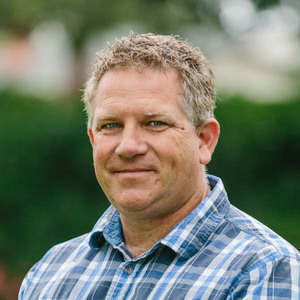The Problem of Misplaced Resources
Images of extreme poverty motivate those with financial resources to donate their money to help alleviate poverty; or that is what the producers of the images hope occurs. However, reducing the terrible and often deadly ramifications of poverty is not as simple as signing the ONE petition or buying RED products (both of which I have done). The problem is also not as straightforward as the global 1% of wealth (the ŌĆ£havesŌĆØ) giving of their means as handouts to the ŌĆ£have-nots.ŌĆØ The position of wealth in the Global West often leads to a mentality that says we know what is best for the Global Rest ŌĆō we assume that if they just do what we did then they will get the same results. However, this classification of foreign aid ignores the resources of the Global Poor and their local churches, and instead creates an unhealthy dependency on handouts undermining the dignity of the materially poor, while ŌĆ£their poverty is actually deepened by the very churches and organizations that are trying to help themŌĆØ (Fikkert & Mask, From Dependence to Dignity, 2015, p. 20).
The Western Church has not had much better results with our missional efforts to share the Gospel as we seek to alleviate poverty, yet this should not be cause for church missions projects to cease. Rather, this should call us to reflect on the New Testament roots of missions and poverty assistance.┬Ā The biblical role of the local church caring about the poor in other geographical regions is a hallmark of early Christianity. The Apostle Paul commended the Macedonian churches for their sacrificial financial support of the Jerusalem church (2 Cor. 8:1-3; 1 Cor. 16:3). Paul related his commission by the Jerusalem church to take the Gospel message to the Gentiles to the call for those same new Gentile converts to give financial assistance to the poor Jewish believers (Gal. 2:1-10). In first century civilization, with limited travel and communication abilities, there would be no ability for a people group to enforce a specific usage of their financial gift; rather the financial resource was left to the recipient local congregation to deliver to the poor families as they saw fit (Acts 6:1-7). This is a model for modern day churches: the focus of the global church should be partnerships that support of local churchŌĆÖs autonomy, responsibility and resourcefulness in caring for the poor within their community (ibid, p. 47). As the Apostle Paul recognized: the financially poor local churches are the underutilized resource in the equation.
The Underutilized Resource
Fikkert and Mask recognize the Global Poor churches are truly churches of the King with resources that foreign aid sources could never have (p. 21). ŌĆ£The center of Christianity has shifted to the Global South, meaning the Great Commission is largely in the hands of churches with few material resourcesŌĆØ (ibid, p. 41). What Global Poor churches lack in finances, they contribute far more in social capital that empowers the sharing of the Gospel through tangible efforts. When these underutilized resources are provided with contextualized training to develop their own sustainable aid methodology, ŌĆ£churches of the poor with few giftsŌĆØ are actually ŌĆ£churches of the King with many giftsŌĆØ (ibid, p. 21). Therefore, the role of para-church, relief organizations and church mission programs should be to serve the local church in the Global South. This approach would allow each local church to determine the means and process of distributing the resources to the people within their span of care.
Integral Mission Principle
Fikkert and Mask present this principle that should guide how missional efforts should operate, they call it the Integral Mission principle:
The global body must function in such a way that the local church is able to use its gifts to engage in their integral mission: proclaiming and demonstrating among people who are poor the good news of the kingdom of God in a contextually appropriate way (p. 48).
In order for the Global church and local churches to develop partnerships for Gospel proclamation and poverty alleviation, three elements must be present in any endeavor: the program must be 1) Replicable, 2) Indigenous, and 3) Sustainable. There are common business principles that are reproducible which allow for vulnerable people to find stability; these include collective savings that allow for loans for expansion and provide forms of insurance that remove the extremely impoverished from the daily struggle for survival. These principles can be taught by Western churches and contextualized to fit the indigenous values and needs of local churches. Finally any new program must be sustainable by the very people it is ministering to and through. The long-term commitment of the Global Church is training through trusted relationships, not financial support. The financial resources of the Global Poor are enough to begin to implement business models that release the strangle hold of poverty and give dignity and stability.
Using Their Own Resources to Improve Their Situation
The important first step of the Western church is a rethinking of the good we are seeking to do. The focus of our assistance should not be about helping the financial poor get wealthy, as the pursuit of money often hinders our connections with God and each other. Rather the goal of foreign aid is stabilizing the lives of the extreme poor so basic necessities, such as education and health care, can become normal expectations and not life threatening choices. Western church missional partnerships can play a nuanced role in consulting, training, and provide some financial resources that draw upon the local churches resources first.
One such foreign aid with this potential is microfinance: ŌĆ£microfinance can play a tremendous role in helping to stabilize poor households, removing them from the brink of disaster and enabling them to make changes that are conducive to long-run progressŌĆØ (ibid, p.24). One effective model is Accumulating Savings and Credit Association (ASCA) that are promoted through local churches providing training and non-financial services to local households and individual people who collectively save money with people of established character who have the capacity to repay. This model works because of the social capital is developed within the group who live and know one another (ibid, p. 167-170, 185).
Utilizing All Resources
As the Global Church reconsiders the good it seeks to accomplish, the next question to ask is, ŌĆ£What is it that the poor churches and indigenous ministry workers really want?ŌĆØ and then ŌĆ£how do we provide these resources?ŌĆØ These questions require intentionally slow action steps that allow for trust-based relationships to develop. Western churches must continue to consider how to care for widows and orphans (James 1:27) but through the indigenous local churches that are spiritually qualified and wise to act (Acts 6). Therefore, unless the situation calls for emergency relief, Western churches and para-church relief organizations need to utilize their under-utilized resource of time to develop partnerships. This will require multiple discussions to help the locally poor churches and indigenous ministry workers discern what they truly want as the situation is complex and no one-solution will fix all problems. Due to our history of Western ŌĆ£hand-outs,ŌĆØ one additional hurdle to overcome is ŌĆ£when people who are perceived as powerful or wealthy make a suggestion, or even ask a question, it can be construed as a command or as a funding opportunityŌĆØ (ibid, p. 284).
To understand what the indigenous local church wants, the discernment process must uncover what those with little resources are willing to contribute their own funds towards. This establishes a sense of dignity rather than pure dependence as both the Western church and the local church ŌĆ£contribute something of value to themselvesŌĆØ in the development of an Integral Mission partnership (ibid, p.294).
In summary, the pressing problems of poverty alleviation require the Global Church to recognize that the Global South churches, which often are financially poor, have resources that must be utilized in the Integral Mission of proclaiming the Gospel while addressing holistic poverty issues. Time is required to access the assets of local churches and to recognize what each indigenous ministry leader wants to do to reach their local community for Christ. The financially impoverished churches have much more to offer to their situation, therefore the Western church must slow down and step back to allow the local church to ask for the real help they need, and to contribute of their own resources to meet that need. In this way we can learn from each other as we partner together in proclaiming the Gospel and meeting the physical, emotional, and spiritual needs of all the people involved in the process.
 51┬▄└“
51┬▄└“

.jpg)

